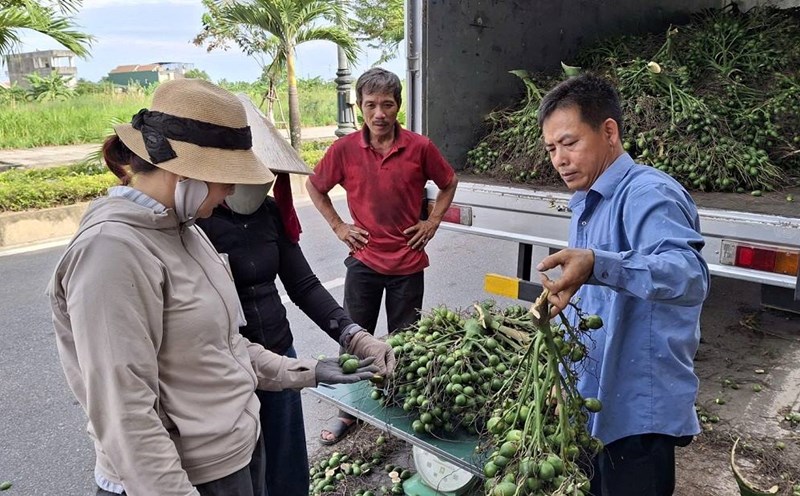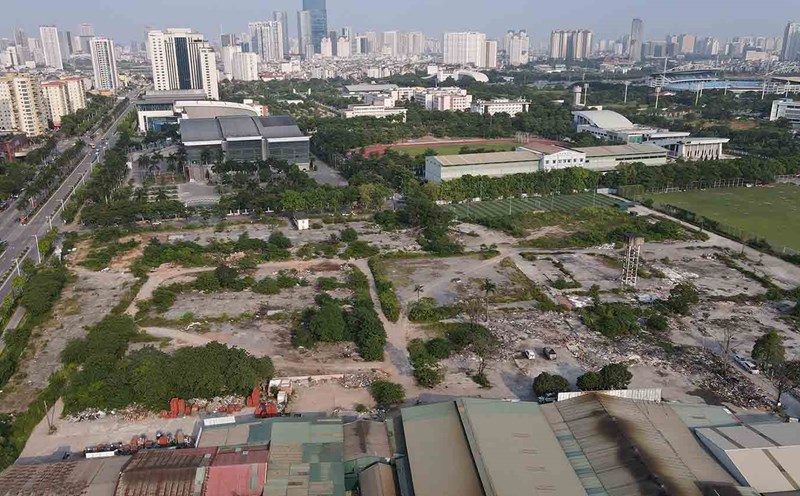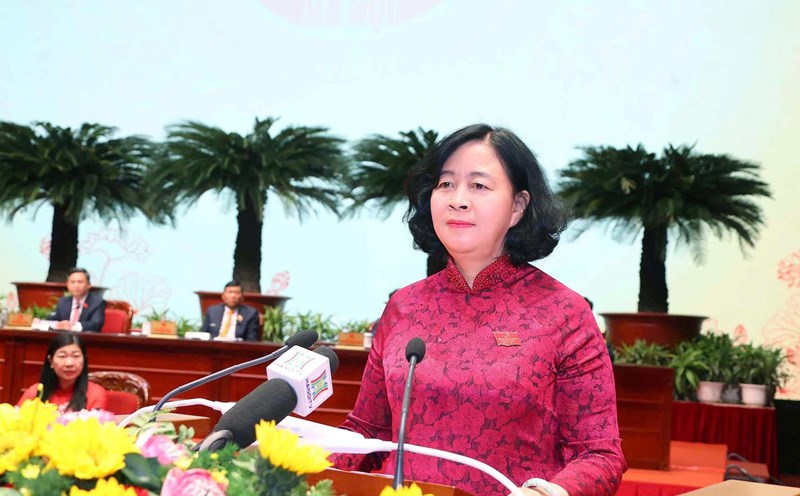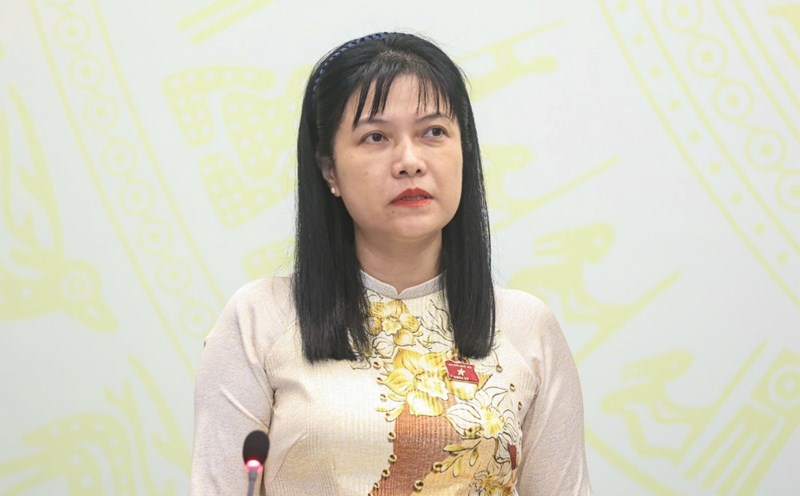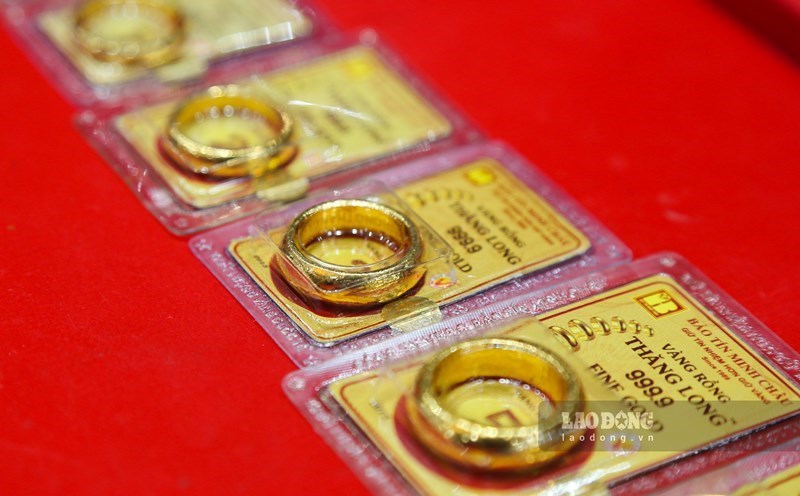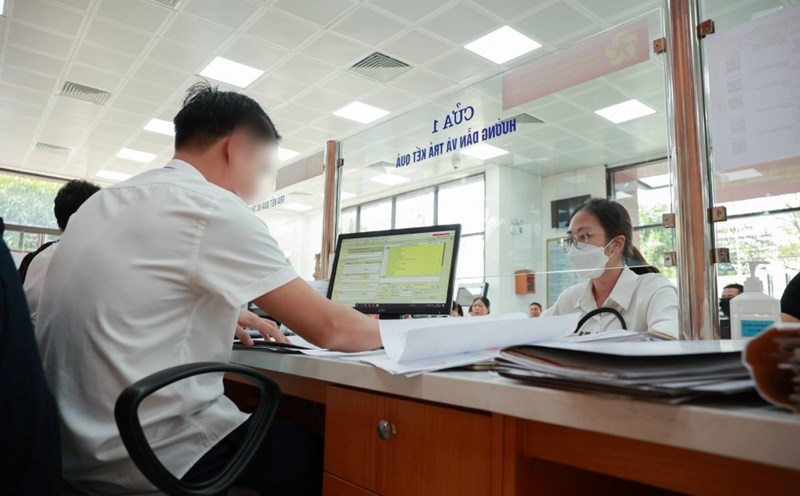On the red soil of Quang Phu commune (Dak Lak), Mr. Nguyen Dinh Hiep's garden of more than 3,000 climbing lemon trees is always lush green and fruit-laden. Amidst the highland sunshine, the mountain rope growing in the net house is the result of many years of attachment, summarizing the experience of farmers.
Mr. Hiep shared that although working at home is more expensive than at first, the effectiveness is clear. The plant is less sick, has reduced pesticides, bears even fruits, is more productive and durable.
Not only Dak Lak, passion fruit is becoming one of the main crops in the Central Highlands. The country currently has more than 10,000 hectares of passion fruit, with an output of 190,000 - 220,000 tons per year and an export turnover of more than 170 million USD.
Dak Lak alone has about 2,700 hectares, with an output of more than 38,000 tons/year, of which 40% is exported to China, 30% is exported to Japan and the US.
Thanks to high productivity and fast harvesting, passion fruit has helped many farming households in Dak Lak, Gia Lai, and Quang Ngai escape poverty and get rich. However, the mass expansion of the area following the movement also carries many risks. When prices increase, farmers rush to plant; when there is excess output, prices plummet.
Mr. Luu Quoc Thanh - General Director of Quicornac Company Limited (Gia Lai) - said that passion fruit is a short-term crop with a quick harvest, so it is easy to grow spontaneously. Without reasonable planning and agricultural incentive policies, supply exceeding demand is inevitable. It is necessary to rely on market demand and the purchasing plan of the enterprise to develop a suitable raw material area.
In that context, the model of linking businesses and farmers and cooperatives is considered an inevitable direction. Mr. Nguyen Van Thai Binh - Director of Xanh Cao Nguyen High-Tech Agricultural Cooperative (Dak Lak) commented that when businesses provide standard varieties, provide technical instructions and packaging products, farmers will feel secure in production. On the contrary, enterprises have stable raw material areas that can control quality for export.
According to Mr. Binh, the first important thing when growing passion fruit is to determine the output market. Each market has its own standards: the EU requires certificates and growing area codes; Russia prefers big, beautiful fruits with low transportation costs; while the US and Australia require additional inspection procedures. Orienting the market from the beginning will determine the sustainability of the growing area.
Many localities in the Central Highlands have coordinated with businesses to open technical training courses, guide VietGAP processes and issue growing area codes.
Some cooperatives in Dak Lak and Gia Lai have been certified with GlobalGAP, creating opportunities for official exports to demanding markets.
According to Mr. Hoang Van Hong - Deputy Director of the National Agricultural Extension Center, to produce standard mountain lemons, it is necessary to comply with technical procedures, register growing area codes and be closely monitored to ensure food safety and meet import market requirements.
In particular, enterprises play a key role in providing quality seeds and materials; farmers need to cooperate in cooperatives to organize concentrated raw material areas and sign coverage contracts.
Production must be linked to market research and organized, at least at the cooperative level, for passion fruit to develop sustainably.

